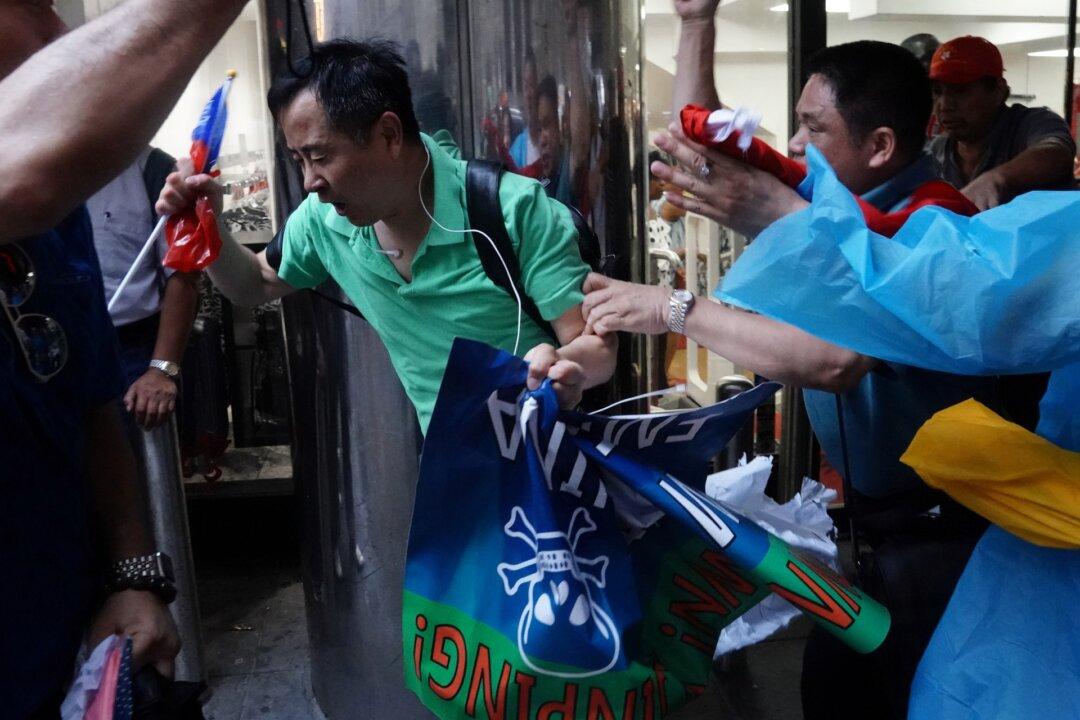New York—While hundreds of pro-China protesters and pro-Taiwan supporters awaited Taiwan President Tsai Ing-wen’s arrival in New York City on July 11, skirmishes broke out between the two sides.
Waving red China flags, opponents of Tsai chanted slogans and broke into fights with Taiwan supporters in front of the Grand Hyatt hotel in Manhattan, where she was due to stay for two nights while on her way to visit several Carribean nations.





